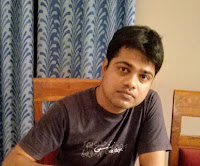Existentialism: A Short Note
Existentialism is a movement in the field of philosophy and literature. It is a reaction against the traditional schools of philosophy of Rationalism, British Empiricism and Positivism. It emphasizes individual existence, freedom and choice. It began in the 19th Century but it reached at its peak in mid-20th Century France. Existentialism was developed by the 19th Century Danish philosopher Kierkegaard and the German philosopher Friedrich Nietzsche. The Phenomenology of Martin Heidegger also contributed to the development of this movement. Georg Wilhelm Friedrich Hegel and Arthur Schopenhauer also enriched the development of Existentialism. Max Stirner, Karl Jaspers, Edmund Husserl, Fyodor Dostoevsky, Franz Kafka, Jean-Paul Sartre, Albert Camus, Simone de Beauvoir and Maurice Merleau-Ponty are some other popular names of this movement. But Jean-Paul Sartre is the most well-known existentialist.
According to this philosophical belief, we ourselves are responsible for making our life meaningful. Our individual purpose is not given to us by Gods, governments, teachers or other authorities. Man is nothing else but that which he makes of himself. That is the basic principle of Existentialism. The individual, God, being, phenomenology, freedom, authenticity and truth are the most significant characteristics of existentialist philosophy. In short, Existentialism is a philosophy that explores the problem of human existence. It centers on the subjective experience of thinking, feeling and acting. After the Second World War the philosophy of Existentialism became very popular. According to it the life had become very insecure. The industrial revolution, the arm race and the political rivalry had shaken the foundation of human existence. The society was suffering from alienation. Everywhere there was chaos and disintegration. The existence of mankind was in danger. Thus the existentialists offered to explore the whole man. They insisted on the existence of man.
Hindi Translation:
अस्तित्ववाद दर्शन और साहित्य के क्षेत्र में एक आंदोलन है। यह तर्कवाद, ब्रिटिश अनुभववाद और प्रत्यक्षवाद के दर्शन के पारंपरिक स्कूलों के खिलाफ एक प्रतिक्रिया है। यह व्यक्तिगत अस्तित्व, स्वतंत्रता और पसंद पर जोर देता है। इसकी शुरुआत 19वीं सदी में हुई थी लेकिन 20वीं सदी के मध्य में फ्रांस में यह अपने चरम पर पहुंच गया। अस्तित्ववाद का विकास 19वीं शताब्दी के डेनिश दार्शनिक कीर्केगार्ड और जर्मन दार्शनिक फ्रेडरिक नीत्शे द्वारा किया गया था। मार्टिन हाइडेगर की रचना घटना विज्ञान ने भी इस आंदोलन के विकास में योगदान दिया। जॉर्ज विल्हेम फ्रेडरिक हेगेल और आर्थर शोपेनहावर ने भी अस्तित्ववाद के विकास को समृद्ध किया। मैक्स स्टर्नर, कार्ल जैस्पर्स, एडमंड हुसरल, फ्योडोर दोस्तोवस्की, फ्रांज काफ्का, जीन-पॉल सार्त्र, अल्बर्ट कैमस, सिमोन डी बेउवोइर और मौरिस मर्लेउ-पोंटी इस आंदोलन के कुछ अन्य लोकप्रिय नाम हैं। लेकिन जीन-पॉल सार्त्र सबसे प्रसिद्ध अस्तित्ववादी हैं।
इस दार्शनिक मान्यता के अनुसार अपने जीवन को सार्थक बनाने के लिए हम स्वयं जिम्मेदार हैं। हमारा व्यक्तिगत उद्देश्य हमें देवताओं, सरकारों, शिक्षकों या अन्य अधिकारियों द्वारा नहीं दिया गया है। मनुष्य और कुछ नहीं बल्कि वह है जो वह स्वयं बनाता है। यही अस्तित्ववाद का मूल सिद्धांत है। व्यक्ति, ईश्वर, अस्तित्व, घटना विज्ञान, स्वतंत्रता, प्रामाणिकता और सत्य अस्तित्ववादी दर्शन की सबसे महत्वपूर्ण विशेषताएं हैं। संक्षेप में, अस्तित्ववाद एक ऐसा दर्शन है जो मानव अस्तित्व की समस्या की पड़ताल करता है। यह सोच, भावना और अभिनय के व्यक्तिपरक अनुभव पर केंद्रित है। द्वितीय विश्व युद्ध के बाद अस्तित्ववाद का दर्शन बहुत लोकप्रिय हो गया। इसके मुताबिक जिंदगी बेहद असुरक्षित हो गई थी। औद्योगिक क्रांति, हथियारों की दौड़ और राजनीतिक प्रतिद्वंद्विता ने मानव अस्तित्व की नींव को हिलाकर रख दिया था। समाज अलगाव से पीड़ित था। हर तरफ अराजकता और बिखराव था। मानव जाति का अस्तित्व खतरे में था। इस प्रकार अस्तित्ववादियों ने पूरे मनुष्य का पता लगाने की पेशकश की। उन्होंने मनुष्य के अस्तित्व पर जोर दिया।


Comments
Post a Comment